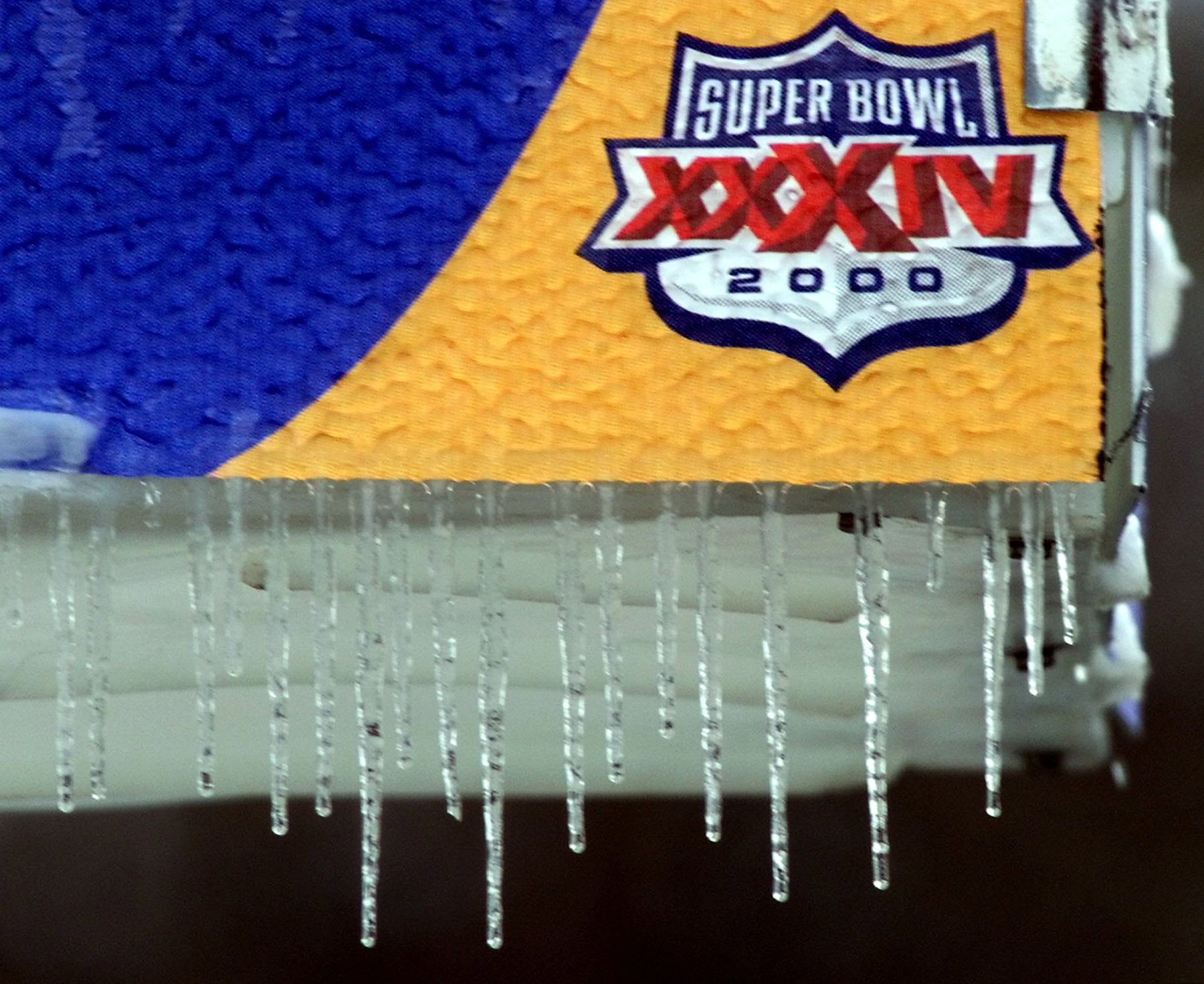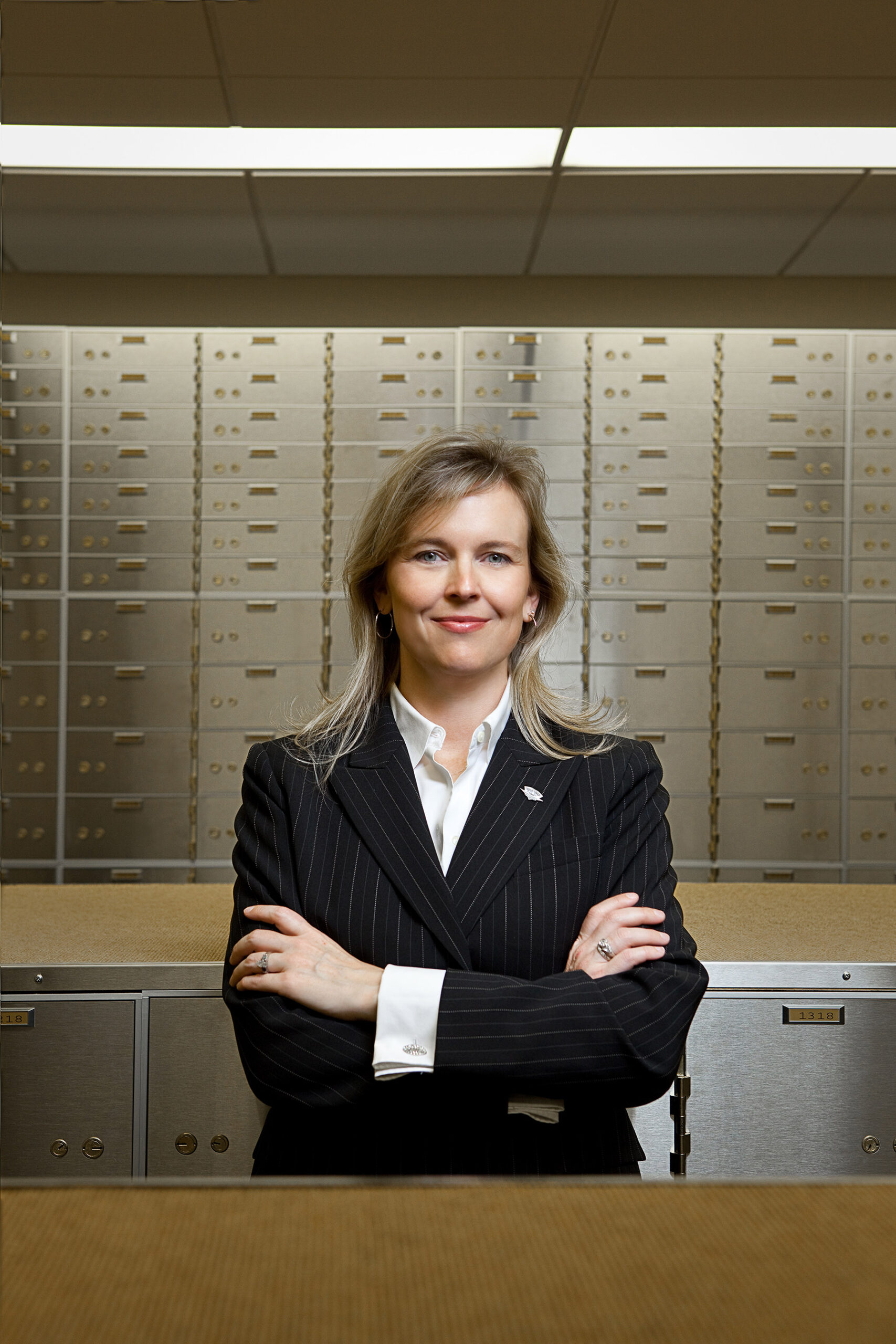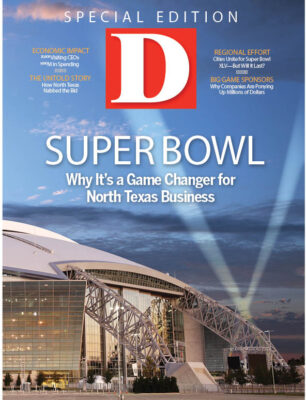When it comes to hosting major sporting events and measuring their economic impact on an area, D.J. Mackovets is the go-to guy.
He served as vice president of operations for the 2004 Super Bowl in Houston and the 2000 Super Bowl in Atlanta. He was also general manager at the Georgia International Horse Park, overseeing 3,000 volunteers, for the 1996 Summer Olympics in Atlanta. Currently he’s the executive director of Houston’s 2011 Senior Games.
He’s survived Super Bowl ice storms, halftime “wardrobe malfunctions,” and Olympic bombings. And he has a message for North Texas companies and fans awaiting Super Bowl XLV:
Hang on for a wild, bumpy, and probably profitable ride.
“The two Super Bowls I have been involved with have exceeded our expectations and estimates,” Mackovets says. “That’s because, big and small, everybody wants to spend locally. Parking lots, signage, linens, and limos—they’re all big winners.”
Nicki Grossman, president and CEO of the Greater Fort Lauderdale Convention and Visitors Bureau, whose area has hosted 10 Super Bowls including the 2010 contest between the New Orleans Saints and the Indianapolis Colts, agrees with Mackovets.
“Probably our biggest surprise was the amount of money [available] for small businesses,” she says.
Saying exactly how much other Super Bowl cities generate in revenue—and how much North Texas can expect from its first Super Bowl next year—is not an exact science, and is often open to interpretation. That’s because there isn’t a standard figure, or even an agreed-upon measuring stick, for Super Bowl revenue.There isn’t a standard figure, or even an agreed-upon measuring stick, for Super Bowl revenue.
A wide variety of groups, from universities to sports business consultants to the NFL itself, attempts to gauge revenue for America’s ultimate sporting event, and often comes up with wildly varying numbers. Add to that the amount of money various Super Bowl committees estimate versus the amount they actually reap—plus convention-and-visitor-group multipliers that estimate how much money is raised and then spread through the community—and the economic benefits of a Super Bowl can be far from clear-cut.
A 2009 PricewaterhouseCoopers study, for example, looked at direct spending only for a region. It came out with figures ranging from $118 million for Detroit in 2006 to $195 million for South Florida a year later. But use the CVB multipliers that Houston, Phoenix, North Texas, and others tend to employ, and the numbers, both projected and actually spent, are much higher.
North Texas Super Bowl vice president and COO Tara Green, who spent more than a decade with the Dallas Convention & Visitors Bureau, says the financial multipliers and total economic benefits are generally considered three times the amount of direct spending.
“If you go and buy a [Super Bowl] shirt for $60, then the shirt vendor turns around and pays his help who sold you the shirt, who then go to the store and get milk and gas with that money,” she says. “That’s probably the easiest way to look at it.”
Some skeptical economists even claim the Super Bowl and similar events have no benefit to the host city at all, merely bringing in new money to replace money already lost.
To Steve Moore, president and CEO of the Greater Phoenix Convention & Visitors Bureau, whose region has hosted two Super Bowls, that assertion is ridiculous. “No offense to any economist, but we would just as soon have the Super Bowl every year than not have it,” he says.
Adds Green: “It’s a direct economic benefit to any region, plain and simple. End of story.”
‘A Huge Draw’
Mackovets says Dallas will see clear benefits from the Super Bowl just as Houston did, because the annual game comes at a time of year that is typically a down tourism month in Texas. That’s in contrast to areas like Phoenix or South Florida, which typically attract snowbirds in the wintertime anyway.
“The first time you host a game, everybody wants to come to your city,” Mackovets says. “Plus you have the new Cowboys Stadium, which will be a huge draw.”
When Houston hosted the 2004 Super Bowl, its first in 30 years, the local Super Bowl committee projected the Houston area would enjoy $336 million in revenue in a pre-game report filed with the Texas Comptroller of Public Accounts, Mackovets recalls.
When the final receipts came in, Houston earned $340 million for the Southeast Texas region.

But there are some unpredictable factors as well.
In 2000, in Mackovets’ hometown of Atlanta, there was $292 million in economic impact in the state for the big game, according to a Georgia State University study, exceeding all projections.
But the reason the Super Bowl has never come close to returning to Atlanta—and the only thing that the game still is known for—is the widespread ice storm that hit the area Super Bowl week, paralyzing the region and the committee’s best-laid plans.
“We made money and did the best we could, and the only thing people remember is, ‘Gosh, the weather was bad,’” Mackovets says.
Rodney Barreto, chairman of both the 2007 and 2010 South Florida Super Bowl committees, says his group claimed $463 million in 2007 spending there.
A recent Miami Herald article cited a PricewaterhouseCoopers study predicting that receipts would be down 25 percent for the 2010 game due to the recession. But Barreto, whose group estimated more than $400 million for ’10, said that doesn’t take into account the “hidden benefit” every host region receives.
“You can’t buy the publicity you receive for your region,” he says. “We estimate it as a $50 million dollar commercial for our area.”
“Regardless of how much money you make, every city always wants it back,” says Moore of Phoenix, which next plans to bid for the 2015 game. “We bid for it every year for the boost it gives your region.”
Moore says the Arizona State University School of Business estimated the total impact of the 2008 Super Bowl at $500 million, after his committee had anticipated just over $400 million in spending.
He also cited the example of the 2005 Super Bowl in Jacksonville, Fla., roundly criticized for its smaller size, general lack of acceptable hotel rooms, and less modern stadium.
“Being somewhat familiar with the Amelia Island market [an hour’s drive from Jacksonville], I know the exposure helped [Amelia’s] real estate market via more awareness from Super Bowl visitors,” Moore says. “Because people were forced to stay there, it exposed them to a new area.”
In the end, of course, the Holy Grail for all local Super Bowl committees is hosting multiple games and the hundreds of millions of dollars they can generate.
Miami just finished hosting its tenth Super Bowl this year, and New Orleans will host its tenth in 2013. The greater Los Angeles area has had seven Super Bowls, while Tampa, Fla., is next with four games hosted, including the one in 2009.
Lively, for his part, believes financial success already is a given for next year’s Super Bowl. So to position North Texas in the coveted “multiple” rotation—and with Atlanta’s experience in mind—he’s mindful of the things no committee can control.
“For one week [in February], we hope to enjoy the ‘evil’ effects of global warming,” he says with a laugh. “Then we can go back to being green after that.”





